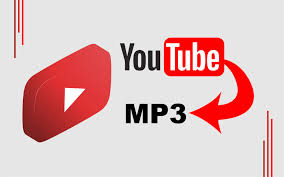May 20th, YouTube to MP3 converters are supposed to maintain the original quality. In technical terms, this is not correct because most YouTube videos max out at a compression of 128 kbps AAC as "original quality" when converting from the compressed audio stream. Any converter will suffer from inherent limitations in the data it was provided with to start. Audiophiles have argued before that when an audio file is compressed fidelity will be loss and the degradation of quality is at least because of psychoacoustics principal involved in all/most (lossy) compression methods for instance AAC,MP3.
This conversion quality outcome has some factor affecting it. Here, the bitrate is an important characteristic — converters who guarantee a 320 kbps output for MP3 may look preferrable. But, more bitrate doesn't make the lost quality suddenly better than how it originated in the source file. In tech circles, it is often falsely associated with high bitrates — which lends the impression of great sound quality when in fact many recordings lack the necessary resolution to support such a claim. The truth is, when you convert a 128 kbps audio to the same file but at 320 kbps; it is similar to upscaling an image of low resolution: that extra data does not bring new features and instead emphasizes existing imperfections.

Studies in the digital media industry have also shown, they say that user experience varies considerably depending on their playback hardware. In fact, most users will be hard pressed to hear differences in quality once audio crosses the 192 kbps barrier (source). But other users with studio-grade audio setups can begin to hear degradation even at the higher bitrates, proving that listening experience ultimately isn't just about file specs--it's also a matter of playback environment.
In addition, you need to understand the extent to which we can rely on this tool itself for conversion. The youtube to mp3 converter software allows for an easy download process; however, the audio quality is not going to remain the same as very much of it will be based off of what sort of encoding algorithm that a specific program might use. Certain assistants instead compress the files even moreproducing a manifest decline in quality. While these aren't profound changes, they can stack up next to the original stream.
The easy and simple answer to this question is no — YouTube to MP3 converters can not keep the quality of digital audio that you would experience on any CD or as close. There is initial compression and then re-encoding takes place, even if some file converters claim to offer higher bitrates. Rather, it becomes a matter of finding the right trade-off between ease and quality that is good enough to be considered acceptable. In the end, youtube to mp3 converter and clone services will provide audio close enough to be confused for that original quality but it's still a marketing mumbo jumbo rather than reality tech.